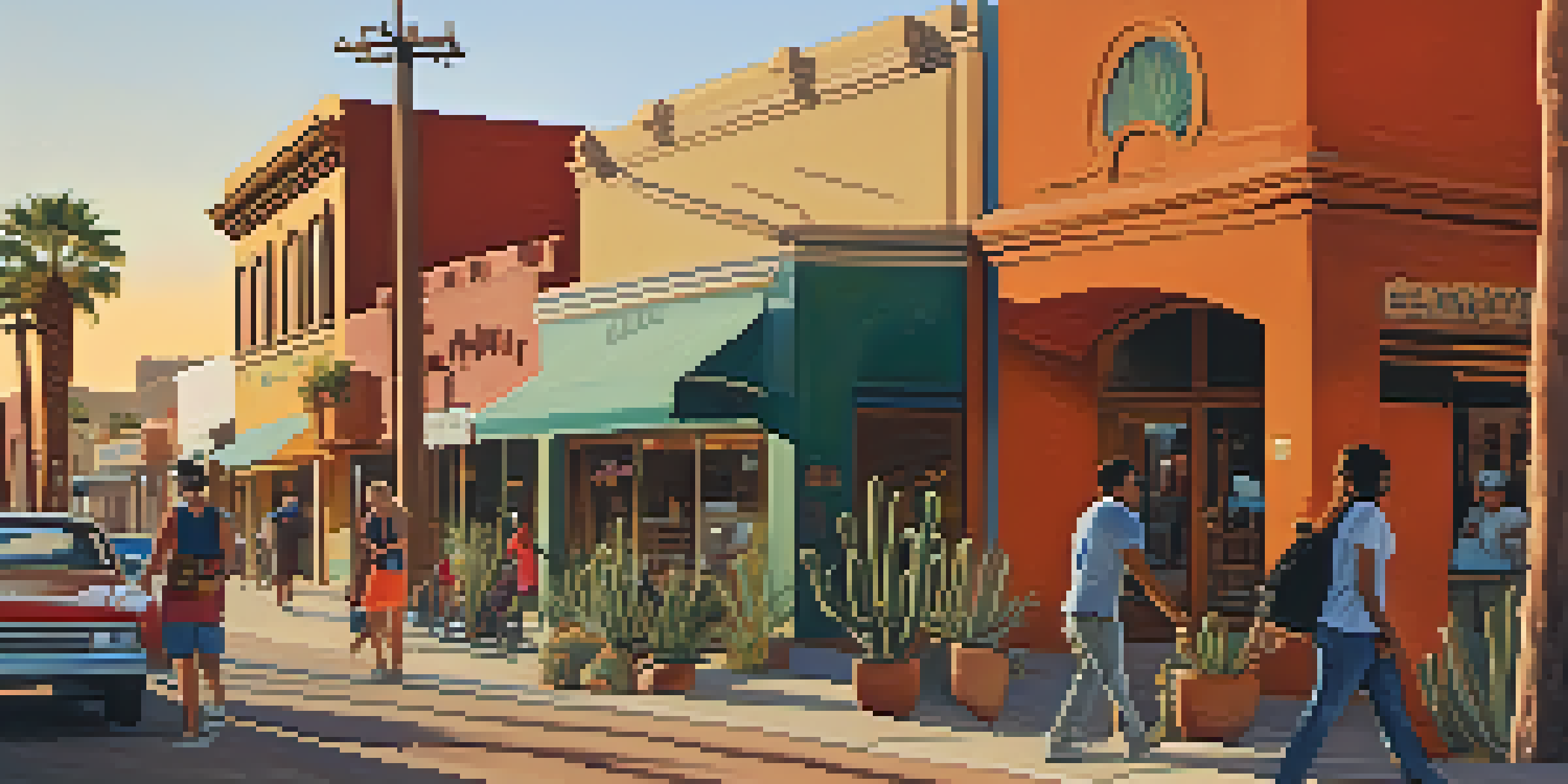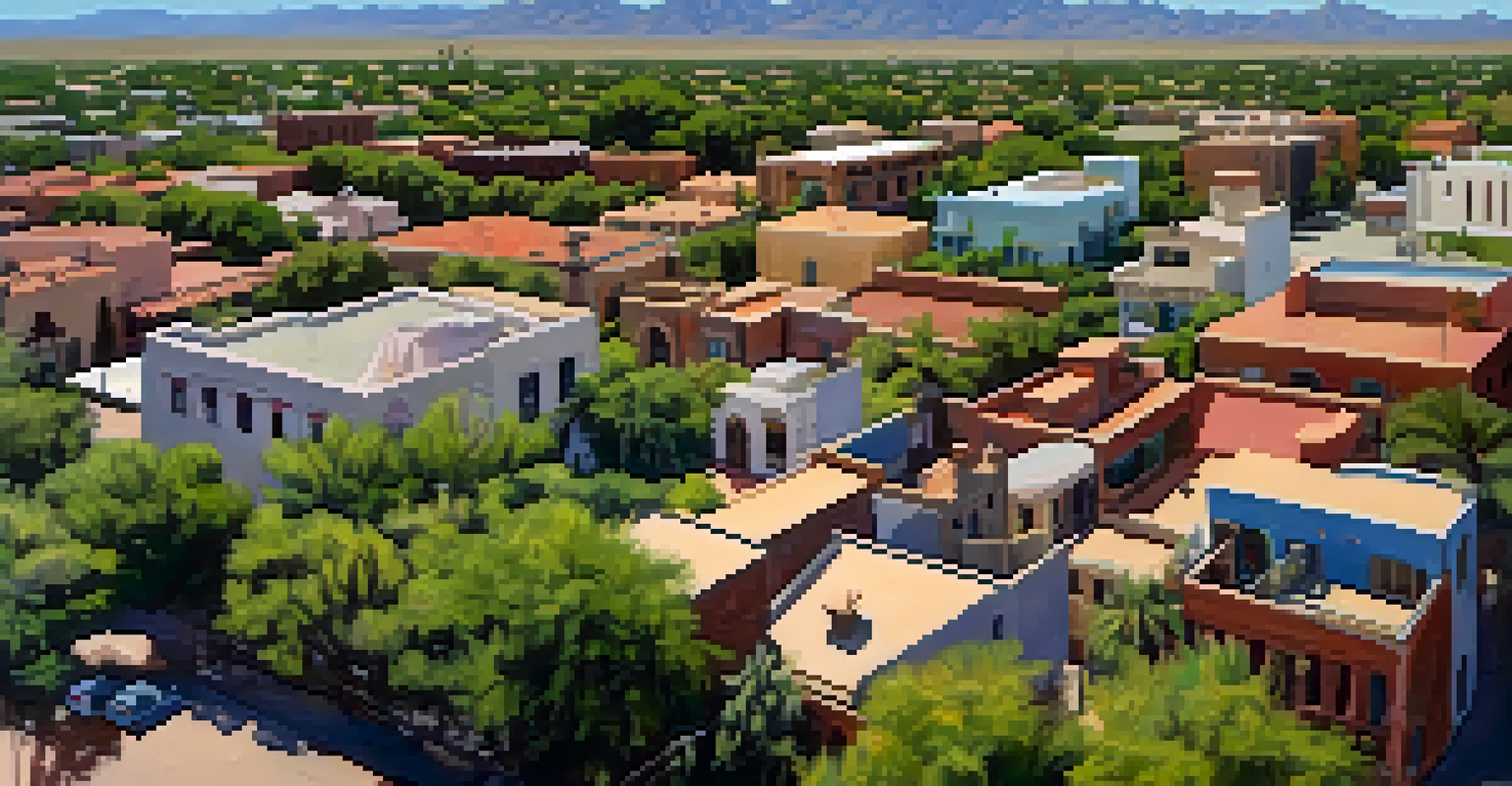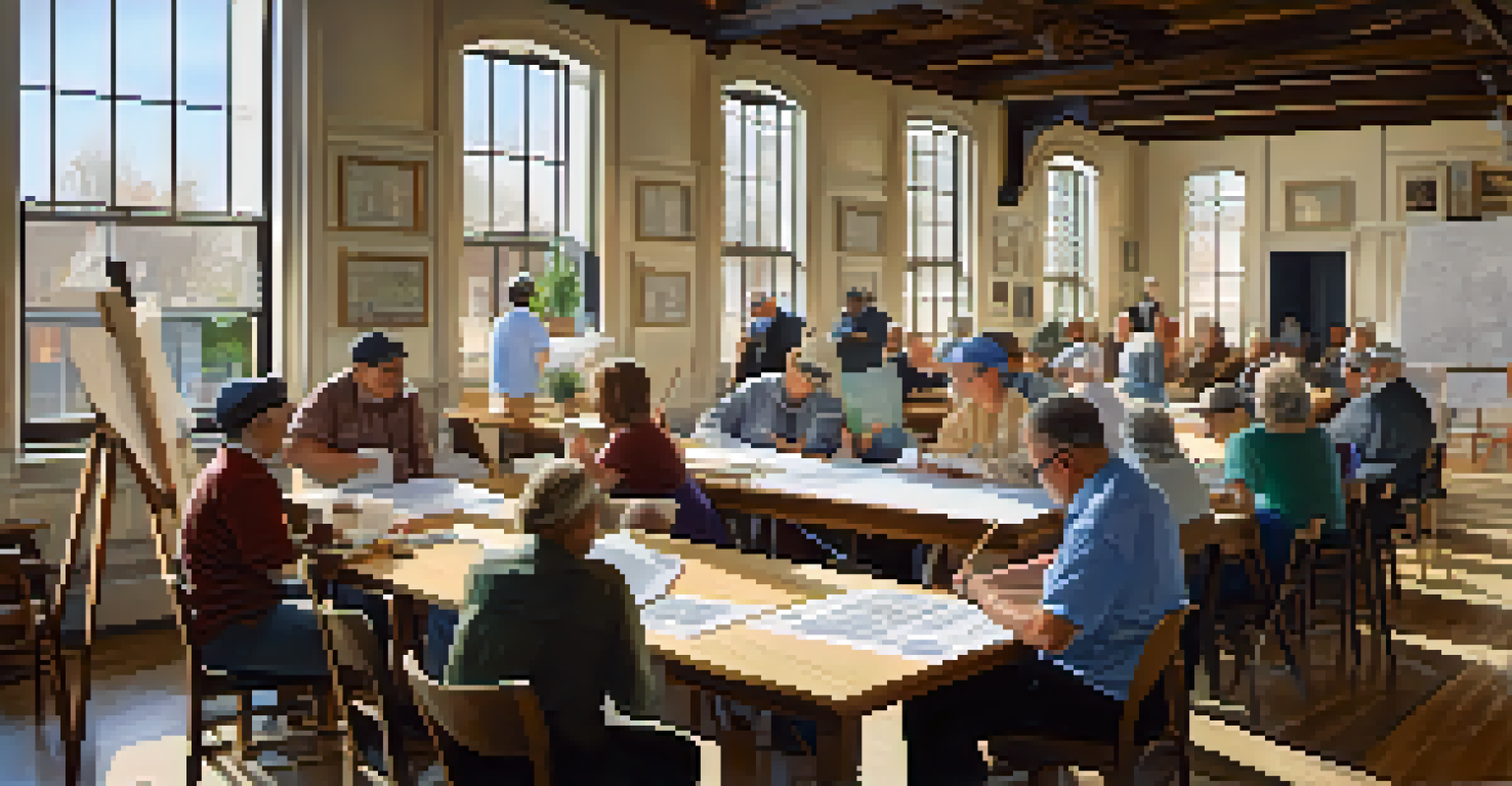Understanding Tucson's Historic Preservation Goals and Initiatives

The Importance of Historic Preservation in Tucson
Historic preservation plays a vital role in maintaining Tucson's unique character. By safeguarding our historical sites, we ensure that future generations can experience the city’s rich cultural tapestry. This preservation not only honors our past but also contributes to community pride and identity.
Preservation is a form of stewardship. It is about taking care of our past so we can enjoy our present and shape our future.
Tucson's diverse history, from Native American roots to Spanish colonial influences, is reflected in its architecture and neighborhoods. Each preserved building tells a story, connecting residents and visitors to the city’s heritage. This connection fosters a sense of belonging and appreciation for our shared history.
Moreover, preserving these historic sites can benefit the local economy. Heritage tourism attracts visitors interested in exploring Tucson's unique past, supporting local businesses and creating jobs. It's a win-win for both the community and its economy.
Tucson's Preservation Goals and Objectives
Tucson's preservation goals focus on identifying, protecting, and promoting historical resources throughout the city. This includes not only buildings but also parks, landscapes, and archaeological sites that contribute to the city’s historical narrative. The aim is to create a comprehensive approach to heritage conservation.

One primary objective is to establish clear guidelines for the renovation and rehabilitation of historic properties. By providing property owners with resources and support, Tucson encourages responsible stewardship of its historic assets. This ensures that changes made to these properties are sensitive to their historical significance.
Preservation Enhances Community Identity
Historic preservation fosters a sense of belonging and pride by connecting residents to Tucson's rich cultural heritage.
Additionally, Tucson aims to increase public awareness and involvement in preservation efforts. Community engagement is crucial for fostering a culture of appreciation for the city’s heritage, making it a shared responsibility among residents. Workshops, events, and outreach programs play a key role in this initiative.
Key Initiatives in Tucson's Historic Preservation
Tucson has implemented several key initiatives to further its preservation goals. One notable effort is the designation of Historic Districts, which helps protect neighborhoods with significant historical and architectural value. This designation provides a framework for managing changes while maintaining the area’s character.
Historic preservation is more than just the buildings; it’s about the stories they tell and the community they foster.
Another initiative is the Tucson Historic Preservation Fund, which offers financial assistance for restoration projects. Grants and tax incentives encourage property owners to invest in their historic properties, making preservation more accessible. This funding can be a game-changer for many historic sites in need of care.
Additionally, the city regularly hosts events like the Tucson Historic Preservation Awards, celebrating individuals and organizations that contribute to preservation efforts. Recognizing these efforts raises awareness and inspires others to get involved, creating a robust network of preservation advocates.
Challenges in Historic Preservation Efforts
Despite the positive strides, Tucson's historic preservation efforts face several challenges. One major obstacle is the balance between development and preservation. As the city grows, the demand for new housing and commercial spaces can clash with the need to protect historic sites.
Funding is another significant challenge. While initiatives like the Historic Preservation Fund are helpful, they may not cover all the necessary restoration costs. Property owners often face financial constraints that can hinder their ability to maintain and preserve their historic properties.
Economic Benefits of Heritage Tourism
Preserving historic sites attracts heritage tourism, which supports local businesses and creates job opportunities.
Community engagement is also essential, but it can be challenging to rally all residents around preservation efforts. Diverse opinions on what should be preserved and how can lead to conflicts. Building consensus and fostering communication is key to overcoming these hurdles.
The Role of Local Organizations in Preservation
Local organizations play a crucial role in Tucson’s historic preservation landscape. Groups like the Tucson Historic Preservation Foundation actively advocate for the protection of historical sites and provide resources for property owners. Their efforts help bridge the gap between the community and local government.
These organizations also organize events and educational programs to raise awareness about the importance of preservation. By engaging with residents, they foster a sense of ownership over the city’s heritage, encouraging individuals to take action. Community involvement is vital for the sustainability of preservation efforts.
Collaboration between local organizations and government agencies further strengthens preservation initiatives. Joint efforts can lead to more effective policies and programs, ensuring that Tucson’s historical treasures are protected for future generations. This teamwork is essential for fostering a vibrant preservation culture.
Community Engagement in Preservation Efforts
Community engagement is at the heart of Tucson's historic preservation efforts. The city encourages residents to participate in preservation planning and decision-making processes. This inclusive approach ensures that the voices of those who live in historic neighborhoods are heard and respected.
Public workshops and forums provide platforms for discussing preservation goals and challenges. These events allow community members to learn about the importance of preserving their heritage while sharing their thoughts and concerns. Engaging the community creates a shared vision for the city’s historical future.
Community Engagement is Crucial
Active community participation in preservation efforts ensures diverse voices are heard and strengthens the commitment to safeguarding Tucson's history.
Moreover, local initiatives like walking tours and educational programs help residents connect with Tucson’s history. By immersing themselves in the stories of their neighborhoods, individuals become passionate advocates for preservation. This grassroots involvement is essential for sustaining Tucson’s vibrant historical legacy.
Future Directions for Tucson's Historic Preservation
Looking ahead, Tucson’s historic preservation efforts are poised for growth and innovation. The city aims to integrate modern technology into preservation practices, such as using digital mapping to document historic sites. This approach can enhance awareness and accessibility for residents and visitors alike.
Collaboration with educational institutions is another promising direction. Partnering with universities for research and preservation projects can provide valuable insights and resources. Engaging students in preservation initiatives fosters a new generation of advocates who appreciate the importance of history.

Ultimately, the future of Tucson’s historic preservation hinges on community involvement and collaboration. By continuing to engage residents and local organizations, the city can ensure its historical treasures remain preserved and celebrated. Together, we can create a lasting legacy that honors Tucson’s rich history.